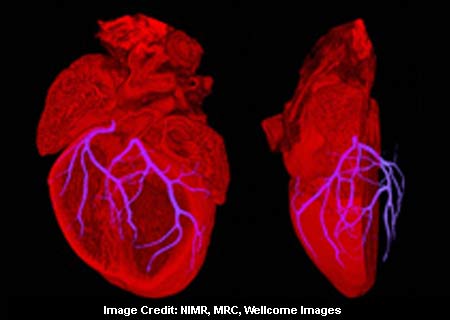Patients suffering from heart failure may be at risk for sudden cardiac death as the calcium within their heart cells is not optimally regulated. New findings revealed by scientists at the Bristol University provide insights on heart failure, which could lead to therapeutic options for the same.
According to the analysts, calcium is responsible for enhanced heart beats and pumping of blood in the body. Calcium is conserved in intracellular stores and is released by means of specialized genes called ryanodine receptor (RyR). The calcium release by the latter is controlled and systematic. In patients with heart failure, the release of calcium seems to be more irregular, thereby causing abnormal heart rhythms.
As part of the research, the scientists removed separate RyR channels present in heart cells and integrated them into artificial membranes. This helped them gauge tiny calcium currents that circulate via a single channel molecule.
“These new findings are important because we can use this information to help develop new treatments for patients with heart disease to reduce the risks of sudden cardiac death.†commented, Professor Rebecca Sitsapesan .
The investigators stumbled upon 2 individual proteins namely FKBP12 and FKBP12.6. Both these proteins seemed to bind strongly to RyR channels and also changed the proportions of calcium flowing through them.
Though both the aforesaid proteins looked almost identical, their functions seemingly varied. While FKBP12 increased calcium flow via the RyR channels, FKBP12.6 apparently impeded the effects of FKBP12. This kind of dual regulation appeared to be impaired in patients with heart failure.
The research is published in the journal, PLoS One.

